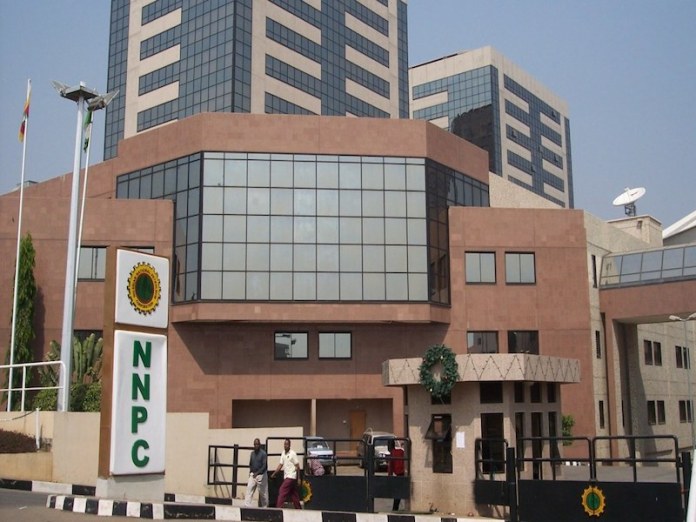- NNPC Chief Urges Firms to Diversify
The Group Managing Director, Nigerian National Petroleum Corporation (NNPC), Dr Maikanti Baru, has called on stakeholders in the oil and gas industry to explore other areas to boost economic diversification.
Baru spoke at the 2018 Nigerian Annual International Conference and Exhibition (NAICE) of the Society of Petroleum Engineers (SPE) Nigeria Council titled: Diversification of the Nigerian Economy: The Oil and Gas Industry as an Enabler held in Lagos. He identified the reliance on oil and gas as responsible for the economic recession experienced in the country recently.
The NNPC chief also urged the stakeholders to look for ways to create alternative funding for exploration activities in Nigeria.
He said: “This obvious lack of proactive action unfortunately exposed the country to economic shock occasioned by the global economic crises that culminated in the recession experienced recently, adding the theme was in line with the vision of the present administration of energising the national economy through robust sectoral development.”
He said with oil reserves of about 37 billion barrels and 199 trillion cubic feet of gas reserves, the country was well positioned to generate resources and accelerate developments.
According to him, once this is achieved, Nigeria should be self-sufficient in providing general services, agriculture and manufacturing, among others.
Baru stated that the reform by the NNPC has centered on third party financing for Joint Venture (JV) operations, hence there is need to look for ways to design an alternative funding for exploration activities in Nigeria.
“I extend NNPC’s gratitude to our local banks, international lenders and Schlumberger representing the local service providers, for their continued faith in Nigeria and their support in providing funding. It is quite an exciting time ahead in the Nigerian oil and gas industry. The industry is financing both the development and infrastructure through alternative funding means.
“The case in point is the Ajaokuta-Kaduna-Kano (AKK) pipeline that is being done under contractor financing with about $3billion. NNPC appreciates the cooperation of its partners and government financiers to move the industry forward. Our goal remains value delivery for all.
“So far, the financing is centred on production, I will like to see the industry to concentrate and develop innovative ways on how to finance exploration. This, I believe, will be the big take-away from this workshop as it appears this is an area that is high and tough. Can we create an industry pool that will be funding for exploration? This is a worthy idea that we should look into. I hope that deliberations in this conference will dwell on other areas that I might have left out today.
“We required an incremental annual capital funding of minimum of $7million to cover the gap and to ensure growth, it was also clear to us that we cannot leave funding gap without looking out giving the outlook of government expenditures and strategic focus.”
The Speaker, House of Representatives, Mr. Yakubu Dogara, represented by Sejus Ogun, said the country needed to pursue and develop an enabling environment that would promote transparency in the oil and gas sector.
Dogara said the Legislature had given tacit support to ensure that the industry was run in a more transparent way, adding that the House of Representatives had demonstrated the support through accelerated passage of the Petroleum Industry Governance Bill (PIGB) now waiting for presidential accent. He also assured that the remaining three other bills would receive the desired attention as the legislators were concerned and willing to provide the investment climate to drive the industry.
The Minister of State for Petroleum Resources, Dr Ibe Kachikwu, represented by Mr Johnson Awoyemi, said the industry required a robust legislation that would help in the ongoing Federal Government transformation.
Kachikwu said the Federal Executive Council (FEC) had demonstrated commitment towards strengthening the industry by giving approval to the oil and gas policies. He urged the conference to come up with suggestions and strategies that would engender transparency, reduce contracting cycle issues, bring about cost reductions and accelerate development across the value chain.
The Chairman, SPE Nigeria Council, Mr Chikezie Nwosu, called for immediate action to leverage the opportunities presented by the industry to develop other sectors. Nwosu regretted that the country had moved slowly in the quest to take advantage of the sector to fully transform the economy.
He said government should not lose focus of the opportunities in the National Gas Policy, “as gas is critical to support such agenda.”

 Forex3 weeks ago
Forex3 weeks ago


 Naira2 weeks ago
Naira2 weeks ago
 Billionaire Watch2 weeks ago
Billionaire Watch2 weeks ago




 Naira3 weeks ago
Naira3 weeks ago




 Naira2 weeks ago
Naira2 weeks ago




 Naira1 week ago
Naira1 week ago




 Naira4 weeks ago
Naira4 weeks ago




 Naira4 weeks ago
Naira4 weeks ago






















